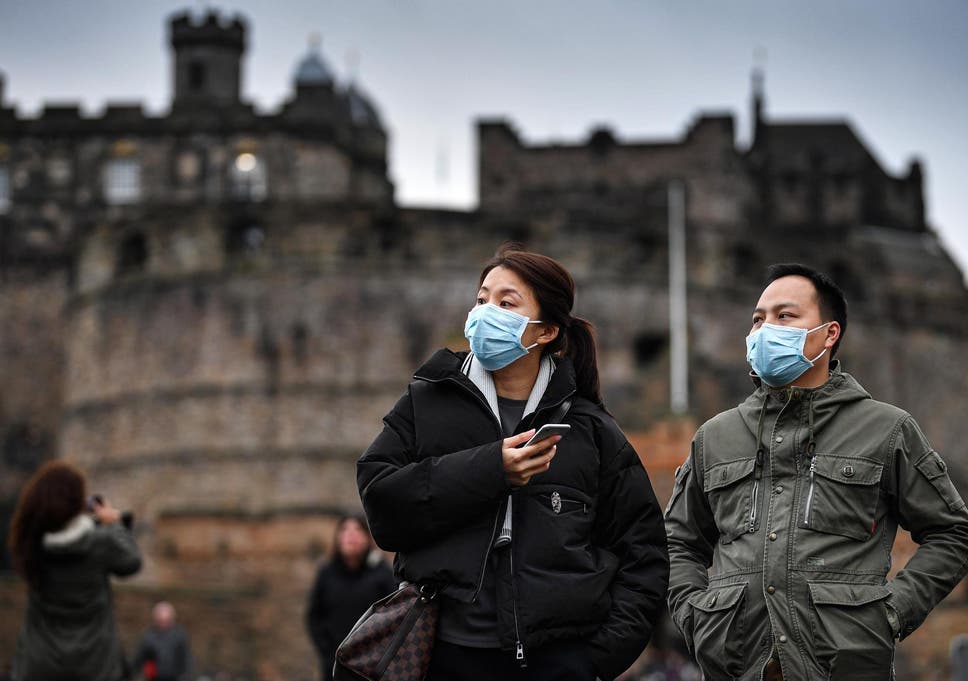Vanquishing the COVID-19-fueled virus of xenophobia
https://arab.news/72aeh

Spanish Prime Minister Pedro Sanchez on Sunday announced that his country would reopen its borders to international tourists from July, urging footloose global travelers to spend their vacation in sunny Spain. The rather surprise announcement followed that of Turkey barely a week earlier that it was fully geared up to receive Chinese tourists at the earliest available opportunity. Over the last two weeks, several other countries, from the Seychelles to Thailand and Greece, said they would soon be ready to receive tourists from all over the world.
The global travel and tourism industry is on its knees after practically all major countries were forced to shut their frontiers to tourists and impose stiff lockdowns due to the coronavirus pandemic. For many countries, and not just exotic tropical islands, tourism is vital to the economy, accounting for more than its fair share of gross domestic product and being one of the largest and most diverse employers. Thus, there now seems to be a race to be the first off the blocks.
Countries’ sense of urgency may be rather obvious if seen from the economic point of view. The pandemic has cost hundreds of millions of jobs around the world and the share of the tourism sector in this is relatively high. Hence politicians think they could earn some brownie points with their voters by showing they are being proactive in sparking an economic revival and restoring jobs.
But the economy is not the sole reason why the travel and tourism industry needs to restart, except with lots of new norms, rules and regulations. There are more pressing social and humane reasons for this key activity to resume at the earliest possible moment — and not just because it is a very common pastime around the globe.
As the coronavirus began its world tour, it brought with it — alongside illness, death and misery — a sharp rise in xenophobia, with nations, regions, societies, communities and even villages closing in on themselves, brutally determining the “other” or “outsiders” not just to be unwanted, but indeed an active danger. And, as people retreated into their shells and shut out everyone else, there have been numerous incidents of hate attacks on anyone who was considered not to belong. At the beginning, these were primarily focused on Chinese nationals or those of Chinese origin. But it soon spread to practically anyone or any community that certain people did not consider as being “one of their own.”
Not surprisingly, a number of extreme right-wing political parties and groups have been actively trying to make political capital out of this tragedy, playing on the irrational and unfounded fears of the populace. The US and a number of European nations, such as the UK, Germany, France, Greece, Italy and Spain, have seen a sharp spike in attempts by such groups to advance their anti-immigrant, white supremacist, ultranationalist, communal or xenophobic agendas.
But it has not only been a problem in the West, as there have also been numerous incidents of aggressive rhetoric and even physical violence against minorities that have been blamed for the pandemic in Asia. In India, for instance, extreme right-wing groups and several prominent media outlets close to the ruling Bharatiya Janata Party have spewed hate toward Muslims, accusing them of spreading coronavirus in the country. Even members of the ruling party have frequently joined in to foment anti-Muslim feelings.
It is in this context that the countries’ efforts to once again welcome tourists from around the globe need to be supported. Tourism is one of the strongest antidotes to xenophobia and hatred, or fear of the “other.” Traveling is not just about seeing landscapes or natural wonders, or even just about having a good time.
The moves by a few nations to reopen their borders to international tourists should not only be welcomed, but replicated at the earliest possible opportunity by other countries.
Ranvir S. Nayar
Right from the time one steps on to the plane, train, ship or car, the experience of opening one’s mind and heart begins. We experience the customs and traditions of different cultures, helping to bridge the gap between people and societies.
The integration that the world has experienced over the past four decades is not just due to industrial or business-led globalization, but due to the intermingling of diverse cultures and traditions through their cuisine, music, literature and films. In all of these, tourism has been a key ingredient, if not the principal driver.
It is time now for this integration to recommence, removing the gaps between people and cultures that have appeared over the past six months. The moves by a few nations to reopen their borders to international tourists should not only be welcomed, but replicated at the earliest possible opportunity by other countries. Of course, there is a need to modify old habits and take adequate precautions and protective steps to ensure that the coronavirus does not stage a comeback. But it is equally crucial for humanity to vanquish another virus — that of fear and hatred of the “other.” In the long term, it is this virus that is more dangerous and needs to be conquered once and for all.
- Ranvir S. Nayar is the editor of Media India Group, a global platform based in Europe and India that encompasses publishing, communication and consultation services.








































